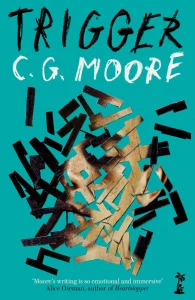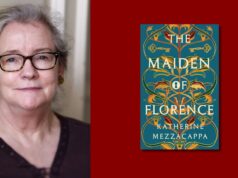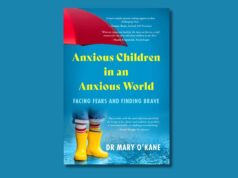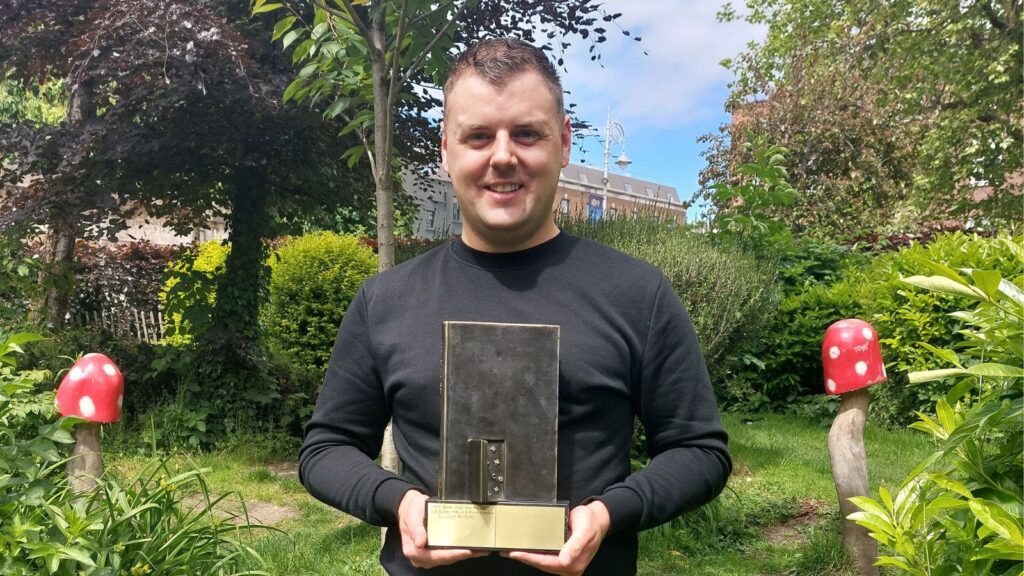
Ruth Ennis talks to author C.G Moore about Trigger, his new book which examines consent and the aftermath of sexual assault
Content warning: This article includes discussion about sexual assault.
C. G. Moore‘s debut novel was Fall Out (UCLan Publishing, 2020). His second book Gut Feelings (UCLan Publishing, 2021) explored his experiences living with chronic illness and was nominated for the Yoto Carnegie Medal and won the KPMG Children’s Books Ireland Book of the Year Award 2022. His new book Trigger (Little Island) is inspired by his experiences of sexual assault and looks at consent.
What encouraged you to take the leap into verse?
When I sit down to write a book, I gravitate to personal stories, something that is triggered by a memory or an experience I had. When I write a poem in a verse novel, it’s a snapshot within a bigger picture. I want my books to be read and reread, for the reader to find something else within the book.
I want my books to be read and reread, for the reader to find something else within the book
I thought Gut Feelings, a book inspired by my experience with chronic illness, would work well in verse. I wrote something like forty pages in one sitting. Trigger is also inspired by things that have happened to me. With experiences of sexual assault, it feels like you don’t have a voice. Verse becomes the perfect vehicle for this topic because every word has to count, compared to how you didn’t have the words at the time.
How do you find the balance between fiction and reality?
It depends on the story and the characters. My first book Fall Out came from a place of being very naïve when I first came out. You almost have a second adolescence as a gay man, in my experience, when you can be authentically yourself. Gut Feelings was very personal, the only things that were fictionalised were the timelines to make the story smoother. For Trigger this book is more a fictionalised version of what happened to a friend combined with my own experiences.
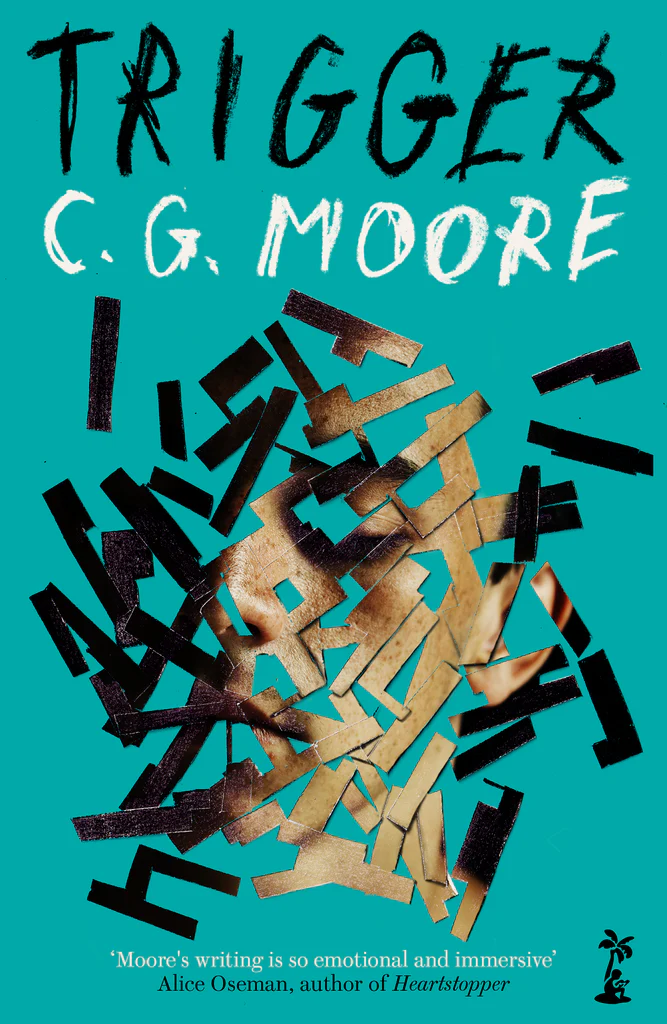
I want the emotion to be there but I don’t want to write about me
With Trigger, I wanted to open up that discussion about consent. It was about striking a balance talking about my own experiences while presenting an opportunity to talk about something this difficult. I draw from the personal emotion, but I have a barrier that blocks me from drawing from the actual events of what happened. It’s not necessarily about the event. I want the emotion to be there but I don’t want to write about me.
Was it important to write about what happens after a traumatic event?
I don’t know if I made a conscious decision to write about the aftermath. I knew Jay, the protagonist, woke up in a park and all the details of that scene. I knew I wanted to explore a moment of kindness when a girl finds him and walks him to safety. I wanted that to be an essential moment, even though it’s short, that although someone has done something terrible to him, it doesn’t take away from the kindness in humanity.
I’m more interested in exploring the mental and emotional impact of the events, rather than the event itself
The story didn’t need to be gratuitous, especially as it’s a young adult book. I think it being graphic would have been counterproductive to getting it into the hands of young people. There’s a degree of separation in the narrative, because I’m more interested in exploring the mental and emotional impact of the events, rather than the event itself. Of course exploring the event is important, but how you convey the aftermath is just as significant. For Jay, the sense of survival, closure and hope for the future was the most important.
I don’t necessarily go into these stories thinking about my identity as a cross-section of experiences with sexual assault and being gay or having a chronic illness. It’s just my lived experience.
What is your approach to writing a story informed by intersections of marginalised identities?
There was a gap in representation in books about queer people and sexual assault. Sex education caters to straight people, and there’s not a place where it discusses what this can look like for queer people. I didn’t feel compelled to write this book as if I was the only one who could tell this story, but rather because it was something I wanted to write.
I don’t necessarily go into these stories thinking about my identity as a cross-section of experiences with sexual assault and being gay or having a chronic illness. It’s just my lived experience.
What books have influenced you as a writer?
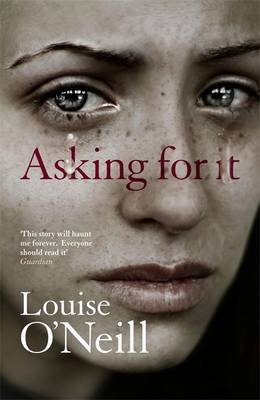
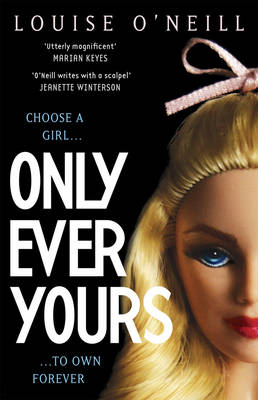
I read a bit of everything. For Trigger, the books that influenced me were Asking for It and Only Ever Yours by Louise O’Neil, and All the Rage by Courtney Summers. Other books I liked were verse novels The Weight of Water by Sarah Crossan, The Poet X by Elizabeth Acevedo, and The Stars at Oktober Bend by Glenda Millard which is a mix of verse and prose.
At the moment, I’m reading every thriller I can get my hands on; A Good Girls Guide to Murder and Five Survive by Holly Jackson, and I’m really looking forward to her new book. Kathryn Foxfield’s Getting Away with Murder, and Tag, You’re Dead are great. I find thrillers easier to read because you can dip in and out of them.
I’d say in some ways I was what you would have called a “reluctant reader” – though I’m advocating for the term “less confident reader” instead
I tend to not reread stories. I’d say in some ways I was what you would have called a “reluctant reader” – though I’m advocating for the term “less confident reader” instead. Reluctant has a stigma attached to it. I was called a reluctant reader and that fed into the cycle of believing that I was one as a teenager.
What advice would you give to writers who are interested in writing stories like yours?
I think if I was speaking to younger Chris I’d tell him to do a chapter by chapter outline, so you can get a bird’s eye view over the story. I find the closer you get to the end of writing a book the more you get tunnel vision. An outline gives you a plan. I winged it for Gut Feelings but that did not work for Trigger.
I think it’s important to write a story that resonates with you and your experiences
I think it’s important to write a story that resonates with you and your experiences. And if you’re not having fun doing it that’s a problem. Don’t do it if you don’t want to. If the first book doesn’t work, write another. It took me two books before I wrote Fall Out. You will can learn as you write too, nobody expects you to know everything when you start out.
What’s next?
I’m working on a new book. It’s told in prose, it’s a dual narrative, it’s about two boys: one who is gay and one who everyone thinks is gay.








